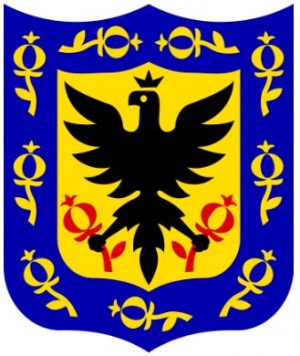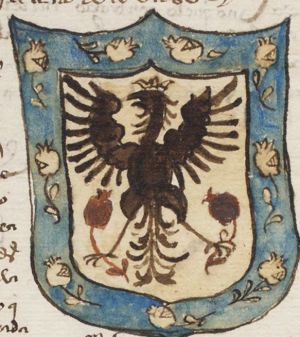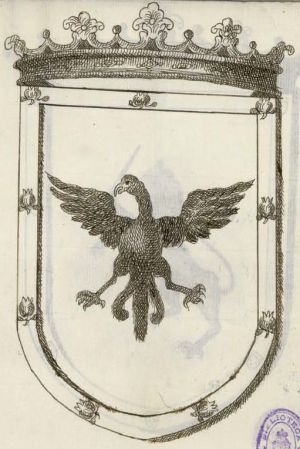Bogotá: Difference between revisions
Knorrepoes (talk | contribs) m (Text replacement - "{| class="wikitable"↵|+Official blazon↵|-↵|'''Spanish'''↵| (wanted)↵|-↵|'''English''' ↵| ↵|}" to "{| class="wikitable" |+Official blazon |- |'''Spanish''' | blazon wanted |- |'''English''' | blazon wanted |}") |
Knorrepoes (talk | contribs) m (Text replacement - "↵↵''' {{uc:" to "''' {{uc:") |
||
| Line 1: | Line 1: | ||
{{co}} | {{co}}''' {{uc:{{PAGENAME}}}} ''' | ||
''' {{uc:{{PAGENAME}}}} ''' | |||
Separate Federal District | Separate Federal District | ||
Revision as of 07:04, 22 December 2023
| Heraldry of the World Heráldica del mundo |
| Colombian heraldry portal Heraldica de Colombia |
|
BOGOTÁ
Separate Federal District
| Spanish | blazon wanted |
| English | blazon wanted |
Origin/meaning
The arms were granted by the Emperor Charles V to the New Kingdom of Granada on December 3, 1548 in Valladolid. It was used by the Viceroyalty of New Granada until independence. It continued to serve unofficially as the emblem of the city, and was formally adopted as the arms for the city of Bogotá on June 13, 1932.
The eagle is the imperial symbol, granted by Charles V and it holds in each claw 2 red pomegranates, the symbol of New Granada (granada means pomegranade).
Its border is azure with nine golden pomegranates, which represent the states that in 1548 formed the New Kingdom of Granada.
| The arms from the 1548 grant |
The arms in a manuscript from 1767 |
Contact and Support
Partners:
Your logo here ?
Contact us
© since 1995, Heraldry of the World, Ralf Hartemink 
Index of the site
Literature: Image from Wikipedia















